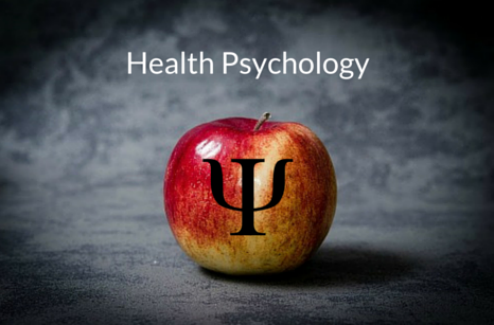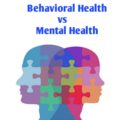Which of the following are basic concepts in health psychology?
A. Social Integration
B. The understanding that illness can be caused by biological, psychological, and social factors
C. People are complex systems
D. All of the above.
The correct answer to the question above is: Both B & C only and here is why
Health psychology, often referred to as behavioral medicine or medical psychology, is the application of psychological theory to health-related practices. The field of health psychology includes two sub-fields. Behavioral health focuses on the prevention of health problems and illnesses, while behavioral medicine focuses on treatment. Health psychology is concerned with the psychology of a range of health-related behaviors, including nutrition, exercise, healthcare utilization, and medical decision-making.
Health psychologists aim at identifying behaviors and experiences that are healthy, cause illness, and control the efficiency of health care. They also propose ways of improving health care and healthcare policy. To promote health and prevent illness health psychologists also develop ways of overcoming addictions. They study the relationship between illness and individual traits. Contextual factors, such as social, economic, lifestyle, cultural, and societal, factors that influence health are also a concern to health psychologists. Health psychologists seek to transform health behaviors with the twin intention of promoting people’s health and aiding patients to stick to disease treatment regimens. Through advocating for behavioral change, they seek to promote health.
Health psychologists probe how diseases affect the psychological health of an individual. An injured or ill person has to deal with various diverse practical stressors. These stressors may cause depression, lowered self-esteem, etc. Health psychology also strives to make the lives of people with terminal sickness better. By assisting the sick to regain at least a part of their psychological health, health psychologist assists in improving the quality of life of their patients.
Psychological and Psycho-Physiological Concepts in Health Psychology
Psychological Concept
Psychology is the science of mind and behavior. By understanding humanity, that is, through discovering the universal principles and studying specific cases, its aims at benefiting society. A professional practitioner in this field is known as a psychologist. Psychology, as a field of study, endeavors to understand the role played by mental functions in individual and also social behavior. It also explores the neurobiological and physiological processes that cause some functions and behaviors. Psychology investigates concepts like cognition, attention perception, phenomenology motivation, personality, emotion, behavior, interpersonal relationships, and brain functioning. Depth psychologists, even consider the unconscious mind. This psychological knowledge in general was practical to the evaluation and management of mental health problems. Among other applications, the knowledge is also applied to understanding and solving problems in physiological health.
Psycho-physiological concept
The area of psychology that studies the relationship between physiological and psychological processes is referred to as Psychophysiology. Psycho-physiologists almost always concern themselves with the study of the psychological and physiological ties in humans. Psycho-physiologists study the impact of psychological states on physiological system responses. Additionally, they study the impact of physiological states and systems on psychological system responses. Psychophysiology is the study of the mind-body interface. Psychophysiology is strongly connected to the area of Neuroscience and Social neuroscience (mainly concerned with associations between psychological events and brain responses). Psychophysiology is also associated with psychosomatics. A person’s psychosocial surroundings are a key basis, directly or indirectly, in how they feel physically, or how they pull through an illness. The question of what causes each other between stress and depression is also an area of inquisition for psycho-physiology. Is depression caused by stress or is it in itself a stressor? Investigating which is the main cause of the other is difficult because each can be a product of the other. Stress comes in various forms. Depression causes stress, and anxiety, and also life events can result in stress. Conversely, stress can also set off a major depressive disorder.
Performance of the mind and body in regulating moods and fighting physical fatigue
The immune system and the brain constantly signal each other and often use the same paths. This may explain how the state of mind influences the body’s state (health). The psycho-social condition of someone might have a direct consequence on their immune system. For example, nervous tension, otherwise known as stress, has diverse effects on the endocrine systems. These include flight activation. Stress is the body’s way of dealing with or preparing to deal with perceived stressors. Stress includes the physiological reflexes that make the body ready for fight or flight. These reflexes are among others; amplified nervous system stimulation, adrenaline release into the bloodstream, blood flow changes to various body parts, etc. Stress, however, is not one and the same as anxiety or arousal. Stress at times does not involve the consciousness of the person to the threat, but the stressor must be seen or thought at some point to be the cause of stress. The level of stress that is felt is dependent on the individual’s judgment of the stressor, even if that judgment is wrong. ALSO READ: Which Of The Following Are Breach Prevention Best Practices?






